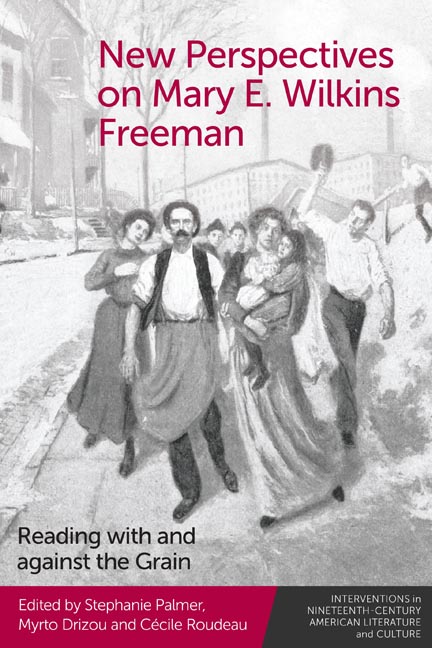Book contents
- Frontmatter
- Contents
- List of Figures
- Acknowledgments
- Contributors
- Reading Freeman Again, Anew
- Part I Kinship Outside of Normative Structures
- Part II Violent, Criminal, and Infanticidal: Freeman’s Odd Women
- Part III Women’s Work: Capital, Business, Labor
- Part IV Periodization Reconsidered
- Afterword: Why Mary E. Wilkins Freeman? Why Now? Where Next?
- Index
2 - “Her Own Creed of Bloom”: The Transcendental Ecofeminism of Mary E. Wilkins Freeman
Published online by Cambridge University Press: 20 October 2023
- Frontmatter
- Contents
- List of Figures
- Acknowledgments
- Contributors
- Reading Freeman Again, Anew
- Part I Kinship Outside of Normative Structures
- Part II Violent, Criminal, and Infanticidal: Freeman’s Odd Women
- Part III Women’s Work: Capital, Business, Labor
- Part IV Periodization Reconsidered
- Afterword: Why Mary E. Wilkins Freeman? Why Now? Where Next?
- Index
Summary
Although not a nature writer in the traditional sense, many of Mary E. Wilkins Freeman’s works explore intriguing relationships between human characters and the natural world. For Freeman, nature is more than mere backdrop; it is front and center, personified, glorified, liberating, mysterious, and transformative. A literary innovator and an early ecofeminist, Freeman frequently drew from the ideas proposed by the antebellum, essay-writing transcendentalists by reinventing the boundary between human and nonhuman. Moreover, Freeman’s numerous short stories, novels, and critical pieces—as well as her involvements with Annie Fields’s literary salon, the New England Women’s Club, and the Quiet Hour Club— realize Margaret Fuller’s vision for a true, female author of American literature, a “second-wave” transcendental realist who believes that the inner worlds of the soul and intellect correspond to the outer world of “Mother” Nature. Like many of her transcendentalist predecessors, Freeman utilized her writing to promote key goals: social reform, respect for the individual and self-culture, and the study of one’s corresponding relationship to environment. However, Freeman’s efforts and influence go beyond the ecocritical aims of the earlier writers by showcasing forward-moving, influential fictional protagonists who actually achieve and reflect on these lofty aspirations. At the center of Freeman’s stories “Christmas Jenny” (1888), “Arethusa” (1901), “The Great Pine” (1903), and “The Apple-Tree” (1903), characters educate and improve themselves and their worlds. They challenge and change restrictive views on gender, not only prioritizing and appreciating the spiritual beauty and companionship of the natural world—as did the first-wave transcendentalists— but also protecting it, confronting and transforming environmental irresponsibility and the patriarchal institutions who seek to perpetuate nature’s destruction for profit.
Ecofeminism emphasizes “the ways in which both nature and women are [mis]treated by men and patriarchal society,” calling for “an egalitarian, collaborative society in which there is no dominant group” (MacGregor 286; Merchant 193). Since Françoise d’Eaubonne’s 1974 introduction of the term, several offshoots have emerged, yet most ecofeminists seek to end social injustice and oppression through nonviolent action and respect, advocating the protection and conservation of wildlife and natural resources.
- Type
- Chapter
- Information
- New Perspectives on Mary E. Wilkins FreemanReading with and against the Grain, pp. 43 - 59Publisher: Edinburgh University PressPrint publication year: 2023

